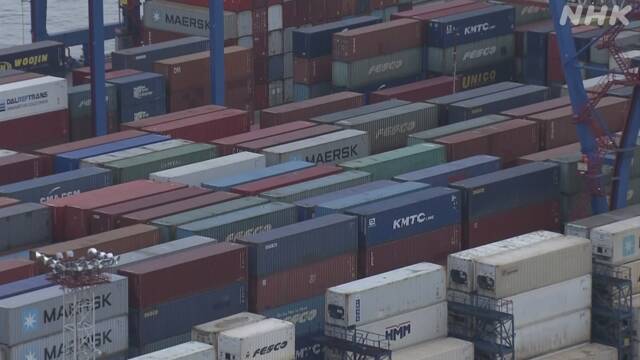The effects of the disruption of the distribution network due to the global shortage of containers are spreading.
The United Nations has put together a report that if container ship freight rates continue to rise, it could boost global import prices by as much as 11% by 2023, affecting recovery from the corona scourge.
With the resumption of economic activities in the global distribution network, the number of packages transported from China and Southeast Asia to Europe and the United States has increased sharply, leading to a global shortage of containers and soaring freight rates.
UNCTAD = United Nations Conference on Trade and Development released a report on marine transportation on the 18th, in which the soaring container freight rate began in the latter half of last year, and ports in various places were congested due to a shortage of workers as well as containers. He points out that this has led to delays in transportation.
On top of that, if container freight rates continue to rise, global import prices will rise by 10.6% by 2023, and it is estimated that consumer prices may rise by 1.5% through rising import prices. It may affect recovery.
Among developing countries, island countries that rely on imports by sea are the most affected, and the rate of increase in import prices is 24.2%, said UNCTAD Secretary-General Rebecca Grinspan. It will have a major impact on trade until maritime transport returns to normal, especially hindering the socio-economic recovery of developing countries. "
UNCTAD states that container ship operators, shippers, port authorities, etc. should share information and improve transportation efficiency.
Ports in the Russian Far East are also crowded
Port congestion due to the disruption of the global distribution network is also occurring at the port of Vladivostok in the Russian Far East.
Cargo ships come in from China and other countries every day, but we cannot handle the luggage and several ships are forced to wait offshore.
Behind the congestion is the increase in luggage from China and other countries due to the resumption of economic activity in Europe.
Normally, cargo transported from China or Southeast Asia to Europe is mainly transported by sea via the Suez Canal.
However, due to the shortage of containers and the resulting rise in fares, the demand for transportation by land to Europe using the Trans-Siberian Railway is increasing, and luggage for that purpose is gathering at the port of Vladivostok.
According to the Russian Railways, the amount of luggage transported between China and Europe via Russia by September has increased by 47% compared to the same period a year ago.
Land transportation has the advantage of shorter travel times than sea transportation.
However, Nikolai Barrakin, president of a trading company that has been working in the logistics industry in Vladivostok for more than 20 years, says that the congestion at the port has caused confusion by delaying delivery by about two months.
"All shippers are squeezing. We have no choice but to overcome the situation, but we don't expect the crisis to subside for the next six months," Barrkin said.

